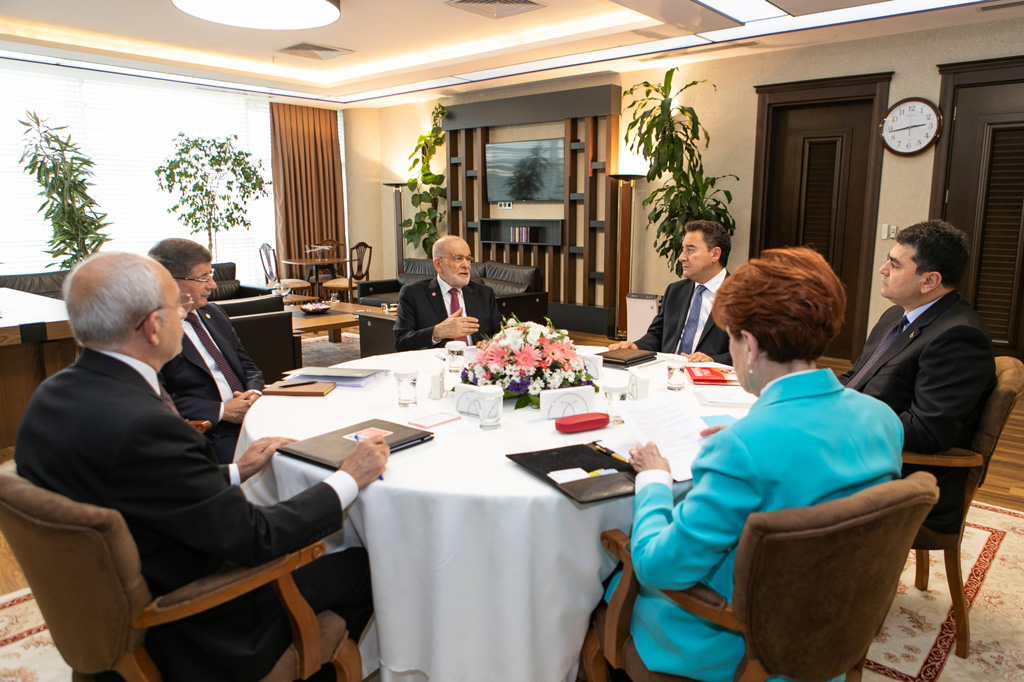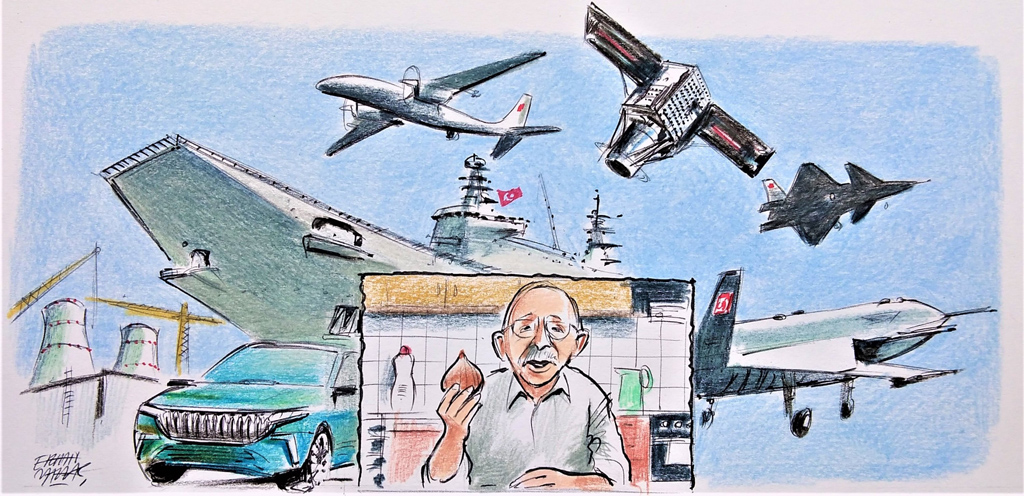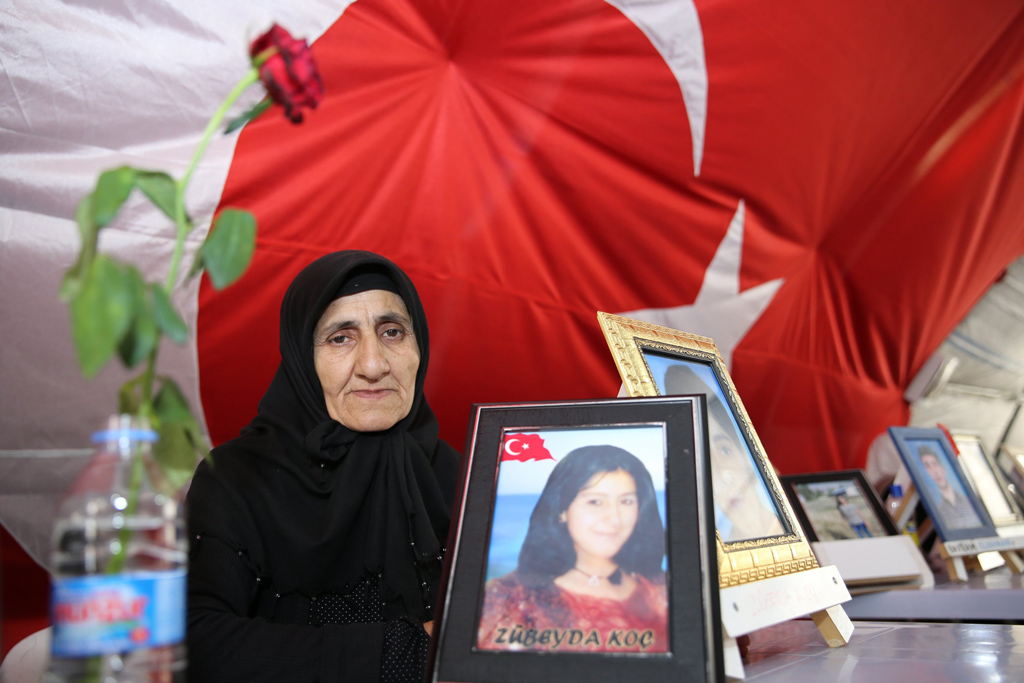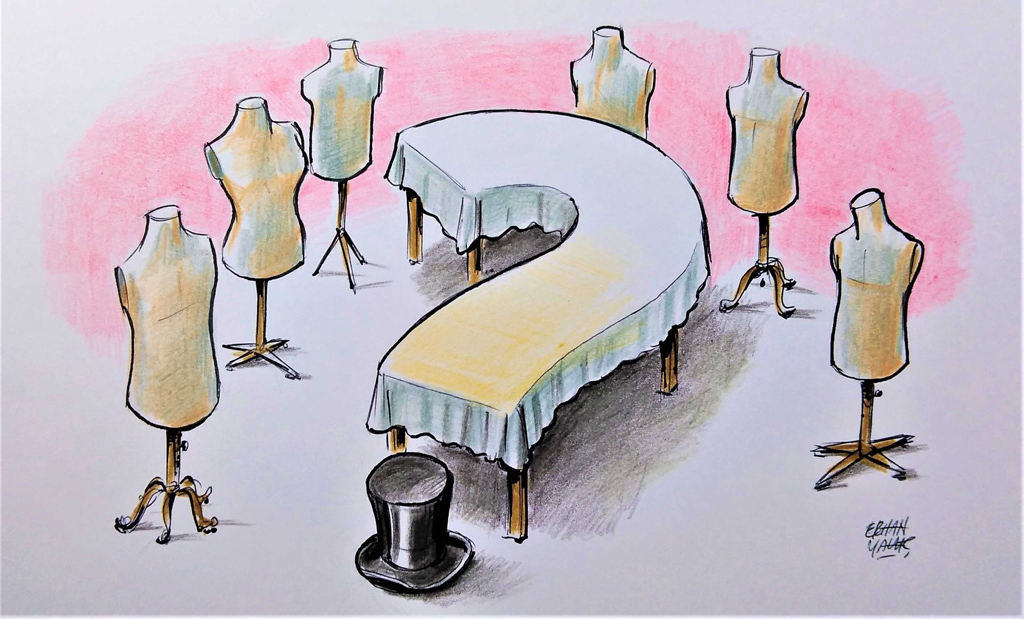I am not among those commentators that expect Türkiye's opposition parties to leave the “table for six,” the group of six opposition parties, which will kick off its second round of meetings in October. Whether they choose to jointly endorse a single presidential candidate or end up contesting next year’s election with multiple candidates, the opposition leaders have no choice but to stick together.
The opposition's mediocrity
Accordingly, the real challenge that the opposition bloc faces is to overcome its mediocrity rather than avoid disintegration. Despite presenting themselves as the opposite of President Recep Tayyip Erdoğan and pledging to restore the parliamentary system, they cannot seem to excite the electorate. At the same time, the opposition fails to come up with a viable alternative for governing Türkiye beyond the Republic’s centennial.
Erdoğan, who proved to be an active leader during the Ukraine war, currently focuses on micro-level policies designed to curb inflation. Under these circumstances, it would be a massive failure for the opposition to be unable to present a joint candidate and agenda formidable enough to win the election and govern the country.
Table for six
The Republican People’s Party (CHP) chairperson Kemal Kılıçdaroğlu, who has made several moves recently, increasingly compels the various components of the “table for six” to sign off on his candidacy. The Democratic Party (HDP), the Felicity Party (SP) and even the Good Party (IP) have already made statements hinting that they are open to that idea. I cannot imagine that the Future Party (GP) and the Democracy and Progress Party (DEVA) would be difficult to persuade either.
The CHP’s own members resume their campaign for Kılıçdaroğlu’s endorsement as the opposition’s joint candidate by arguing that nominating a politician seated around the “table for six” would relieve some of the pressure that the other opposition leaders are currently facing. Perhaps they think that going with the CHP chairperson would serve to fuel the perception that the opposition picked a candidate “under the guardianship of six chairpersons” and make it easier to approach the electorate with a truer coalition.
Although the “table for six” has tabled the discussion on presidential candidates, for now, it is no secret that Kılıçdaroğlu is stronger than ever. Accordingly, he could serve himself by running as a joint presidential candidate or hoping to receive the opposition’s support in the second round.
The political debate during the inception of the “table for six” was centered around the proposal for restoring the parliamentary system. Due to the competition among various presidential hopefuls in the opposition, attention shifted toward a joint candidate, a common agenda, the transition process and beyond. As the mayors and other chairpersons gradually lagged behind, the opposition was left with two options: Endorsing Kılıçdaroğlu or a dark horse. Yet both options are encumbered by a level of mediocrity that fails to excite the electorate.
It appears that the opposition bloc has decided to postpone the announcement of their candidate by three or four months before next year’s election. That decision was made to prevent their candidate from being tarnished and to reach a power-sharing agreement, with which the candidate in question will have to comply. In other words, the opposition wants to hold off the debate on their potential candidates until there is a clear timeline for next year’s race.
By the time the candidates are made public, however, I believe that the debate will focus on the proposed presidential system rather than the opposition’s candidate. It is true that the opposition has a long-term plan to restore the parliamentary system. Yet they will also make a proposal under the presidential system to determine how the joint candidate and the six opposition leaders form their coalition.
As such, the real war of words will be fought over two competing presidential systems. The first option will be assessed by Erdoğan’s performance and leadership. The discussion on the alternative will focus on the complex formula that the “table for six” will impose on the opposition’s candidate to overcome the challenge of keeping six or seven political parties together. At that point, the pro-government People’s Alliance will have plenty of arguments to use against the opposition’s candidate, agenda and transitional coalition. That is why the actual issue, which the “table for six” needs to resolve, is what kind of presidential system to endorse – as opposed to picking a candidate.
A new strategy
The question is whether Kılıçdaroğlu’s plan is working. The CHP chairperson has resorted to a new tactic in the last couple of months and posted videos online regarding the various packages that the government intends to unveil to help fixed and low-income households amid high inflation. For example, Kılıçdaroğlu knew about the government’s plan to erase student loans and put off the collection of overdue debt to make such public statements. He exploits those steps to create the impression that the government does what the opposition pledges to do. It is possible that the CHP leader thinks that taking such steps could dilute the impact of the government’s micro-level policies on the campaign trail.
I believe this tactic is not helping the opposition in the slightest. After all, people will not just give credit to Kılıçdaroğlu while Erdoğan is the one addressing pressing economic problems, given that the latter has been in power for two decades. Yet the opposition would be expediting the government’s efforts to address micro-level problems ahead of next year’s election – which would make it impossible for many such steps to be discredited as “election-related investments.”
[Daily Sabah, August 28, 2022]









